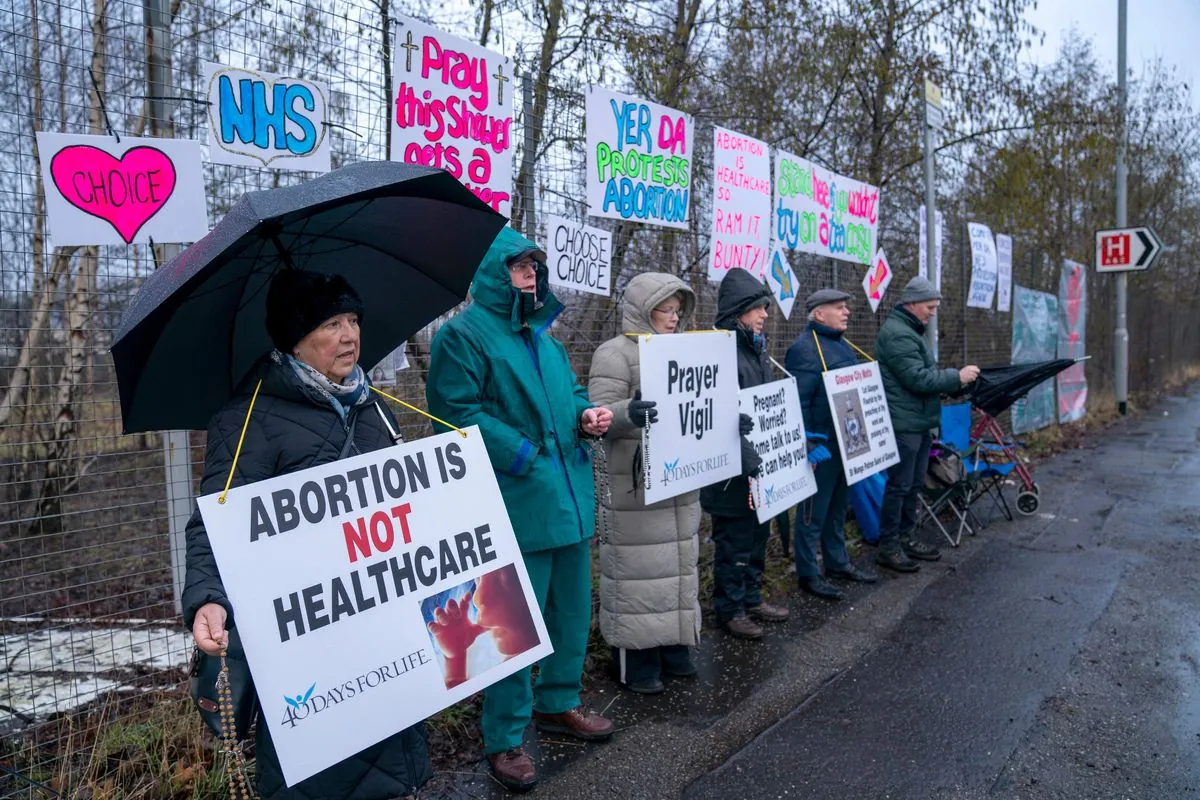UK to Implement Buffer Zones Banning Silent Prayer Near Abortion Clinics
New legislation in the UK will prohibit protests, including silent prayer, within 150 meters of abortion clinics starting October 31. The law aims to protect women's access to healthcare services.

The UK government is set to implement new legislation on October 31, 2024, establishing buffer zones around abortion clinics. This law will prohibit protests, including silent prayer, within 150 meters of facilities providing abortion services. The measure, part of the Public Order Act 2023, aims to safeguard women's access to healthcare without intimidation or distress.
Jess Phillips, the Home Office's safeguarding minister, emphasized the importance of this legislation: "The right to access abortion services is a fundamental right for women in this country, and no one should feel unsafe when they seek to access this." She added that the government is determined to make the country safer for women.
The new law represents a significant shift from previous Conservative government guidance. Labour has removed draft instructions that would have allowed silent prayer within these "safe access zones." Additionally, exemptions for "consensual" communication, such as leaflet distribution or conversations with activists, have been scrapped.
Under the new regulations, any action intentionally or recklessly influencing someone's decision to use abortion services, obstructing them, or causing harassment or distress to patients or employees will be illegal. Violators could face an unlimited fine if convicted.

This legislation comes amid ongoing debates about reproductive rights and freedom of expression. In the past two years, three individuals have been prosecuted for silent prayer near abortion clinics, highlighting the tension between religious expression and women's healthcare access.
Jeremiah Igunnubole of ADF International, a faith-based legal advocacy group, expressed concerns about the law's potential impact on civil liberties. He stated, "Unless there is clarity that there is a protected human right to freedom of thought, and to engage in consensual conversation, innocent people could be wrongly criminalised."
The implementation of this law marks a significant milestone in UK abortion legislation history. Since the opening of the first legal abortion clinic in 1968, following the Abortion Act 1967, the UK has seen evolving attitudes and policies regarding reproductive rights. In 2022, 214,869 abortions were performed in England and Wales, with 87% occurring before 10 weeks of pregnancy.
Law enforcement agencies, including the College of Policing and Crown Prosecution Service, are developing guidelines for officers to determine when behavior meets the threshold for prosecution under the new law. This guidance will be crucial in balancing the protection of women's rights with concerns about freedom of expression.
Stella Creasy, a Labour MP who campaigned for the ban, welcomed the implementation: "It's vital that the protection parliament designed to let [women] do so in peace is now implemented." She emphasized the importance of protecting women's privacy when making healthcare decisions.
The buffer zones will apply to approved clinics under the Abortion Act 1967, private hospitals, and NHS hospitals that have provided abortion services in the past year. This comprehensive approach aims to ensure consistent protection for women seeking abortion services across various healthcare settings.
As the UK prepares to enforce these new regulations, the debate continues over balancing reproductive rights, freedom of expression, and public safety. The implementation of this law represents a significant step in the ongoing evolution of abortion legislation and women's healthcare access in the United Kingdom.


































